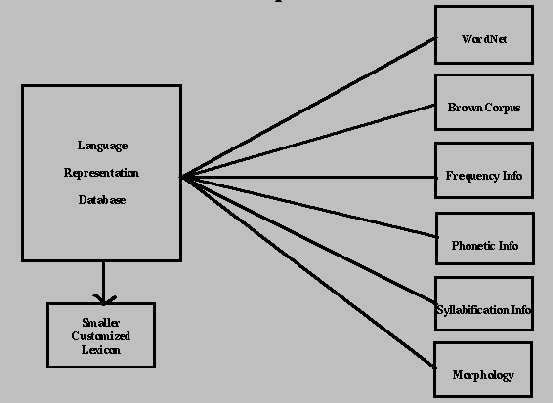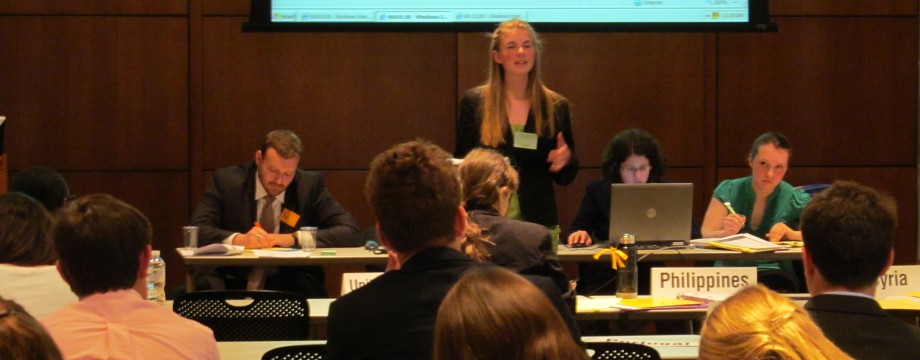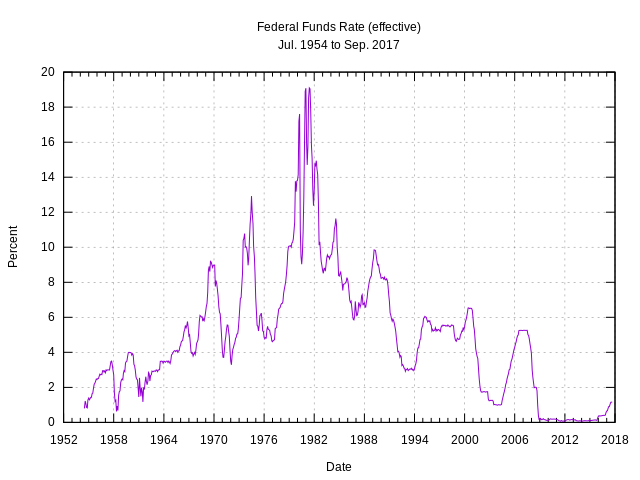Discover Risk management

Risk management Technical Terms
Risk management: Management of the risks to which a company might be exposed. It involves analysing all exposures to the possibility of loss and determining how to handle these exposures through such practices as avoidance, reducing the risk, retaining the risk, or transferring the risk e.g. see reinsurance.
Discover Retrocessionaire

Retrocessionaire Technical Terms
Retrocessionaire : A reinsurer that accepts retrocession business.
Expose Retrocession

Retrocession Technical Terms
Retrocession: Reinsurance of reinsurance, either on a risk-by-risk basis, or on a portfolio of business.
Remember Residual risk

Residual risk Technical Terms
Residual risk: This refers to the remaining levels of risk, after risk treatment measures have been taken.
Explain Reserves

Reserves Technical Terms
Reserves: An insurer will set aside funds from its premiums and/or profits to meet known or anticipated claims in the future.
Expose Representation

Representation Technical Terms
Representation: A statement made about material facts relating to the insurance being proposed—e.g. previous claims. These representations become the basis of the contract.
Explain Reinsurers

Reinsurers Technical Terms
Reinsurers : Insurers which take on part of the risks taken on by insurers.
Remember Reinsured

Reinsured Technical Terms
Reinsured: An insurance company or Lloyd’s syndicate who buys reinsurance. This term is the preferred usage to “cedant” in non-proportional reinsurance contracts as risks are not ceded to these contracts—losses exceeding the deductible being payable by the Reinsurer.
Remember Reinsurance treaty

Reinsurance treaty Technical Terms
Reinsurance treaty: An agreement in writing between an insurer and one or more reinsurers. The insurer agrees to pass on some of the risk, and the reinsurers agree to accept, within pre-arranged limits.
Expose Reinsurance
iStock_000006218863XSmall.jpg)
Reinsurance Technical Terms
Reinsurance: The practice whereby one party, the reinsurer, in consideration of premium paid, agrees to indemnify another party, the reinsured, for part or all of the liability assumed by the reinsured under a policy (or policies) of insurance. There are two methods of reinsuring risks: Treaty Reinsurance and Facultative Reinsurance.
Discover Recital clause

Recital clause Technical Terms
Recital clause: The clause in a policy document which introduces the parties to the contract and some basic information about the contract.
Explain Real property

Real property Technical Terms
Real property: Real estate—e.g. land and permanent buildings.
Expose Rating, no claim bonuses and no claim discounts

Rating, no claim bonuses and no claim discounts Technical Terms
Rating, no claim bonuses and no claim discounts: (usually associated with motor vehicle insurance) - A discount off your car insurance premium. The discount increases each year providing no claim that reduces your rating/discount is made on your policy. It keeps on increasing until it reaches the maximum discount level, called 'rating one' or 'maximum no claim bonus'.
Discover Quota Share Treaty (Reinsurance)

Quota Share Treaty (Reinsurance) Technical Terms
Quota Share Treaty (Reinsurance): A form of proportional reinsurance under which the cedant is obliged to cede, and the reinsurer to accept, a fixed share of every risk up to a maximum dollar amount, in a specified class of business.
Expose Pure risk premium

Pure risk premium Technical Terms
Pure risk premium : The portion of the premium needed to pay losses (claims).
Remember Proximate cause

Proximate cause Technical Terms
Proximate cause: The first event in a chain of continuous events. Insurance covers the proximate cause of a loss—e.g. a rusty roof may let rainwater in. The proximate cause of any storm damage would probably be the rusting out of the roof which is NOT covered by insurance.
Expose Proposer

Proposer Technical Terms
Proposer: A person who proposes for insurance. If the proposal is accepted then the person becomes the insured.
Remember Proposal

Proposal Technical Terms
Proposal: Includes a document containing questions to which a person is asked to give answers that will be used in connection with a proposed contract of insurance. A completed proposal form is an offer by the intending insured to enter into an insurance contract. It is NOT an offer by the insurer. An insurer may accept or decline a proposal.
Explain Professional indemnity

Professional indemnity Technical Terms
Professional indemnity: Insurance covering a professional for his or her legal liability to others due to professional negligence.
Explain Products liability insurance

Products liability insurance Technical Terms
Products liability insurance: Insurance taken out by manufacturers to cover liability claims arising from their products.
Expose Product Disclosure Statement

Product Disclosure Statement Technical Terms
Product Disclosure Statement: A Document prepared by, or on behalf of, the product issuer which contains all the information about the product including the name and address of the issuer (the insurer), significant benefits, cost, terms and conditions, cooling off period and the dispute resolution process.
Explain Pro rata cancellation

Pro rata cancellation Technical Terms
Pro rata cancellation : This refers to the proportion of premium refunded to an insured in the event of cancellation of the policy. A pro rata refund is calculated according to the period of insurance unearned by the insurer at the date of cancellation.
Explain Prescribed Contract

Prescribed Contract Technical Terms
Prescribed Contract: The Insurance Contracts Act has special rules for six classes of personal insurance. These are called the Prescribed Contracts, and the Act prescribes the events an insurer must provide under each of these contracts by way of standard cover. Insurers are free to provide more than standard cover and can even provide less than standard cover, provided the insured was notified of this in writing. Home insurance, private motor insurance and personal accident insurance are examples of Prescribed Contracts.
Expose Premium funding

Premium funding Technical Terms
Premium funding: An arrangement between an insured and a finance provider whereby the insurance premiums are paid directly to the insurer by the financier and repaid to the financier by the insured under agreed credit terms.
Discover Premium

Premium Technical Terms
Premium: The price of insurance cover for a specified risk for a specified period of time
Remember Precedent condition

Precedent condition Technical Terms
Precedent condition: A condition which must be met beforehand. It may need to be met before a policy is issued or before a claim will be considered.
Expose Precedent

Precedent Technical Terms
Precedent: A judge-made decision considered to be applicable in a later case.
Discover Policyholder

Policyholder Technical Terms
Policyholder: Generally use to describe the policy owner and/or insured.
Explain Policy schedule

Policy schedule Technical Terms
Policy schedule: A notice showing the particular details of a policy.
Explain Policy

Policy Technical Terms
Policy: Means the Product Disclosure Statement and the policy schedule.
Discover Plaintiff

Plaintiff Technical Terms
Plaintiff: A person or entity bringing civil proceedings against some other party.
Expose Personal Valuables

Personal Valuables Technical Terms
Personal Valuables: For most people, their Home contents include personal valuables which they often wear or take with them when they are away from their home. Cover for these items is often limited.
Discover Personal lines

Personal lines Technical Terms
Personal lines: This term is used to refer to insurance for individuals and families, such as private car insurance and home insurance. Contrast with Business Insurance and Commercial Lines.
Explain Personal liability insurance

Personal liability insurance Technical Terms
Personal liability insurance: Insurance covering the personal liability an insured may have to others as a result of being negligent.
Expose Personal Advice

Personal Advice Technical Terms
Personal Advice: A statement which influences or is intended to influence a person to purchase a particular financial service or product and which takes into account one or more of a person’s individual circumstances. This is a Financial Services Reform Act (FSRA) term—the FSRA is now part of the Corporations Act.
Expose Period of cover

Period of cover Technical Terms
Period of cover: Means the current period for which we have agreed to provide you with insurance cover. The current period is shown on the most recent of your insurance schedule and renewal notice and any receipt we may send to you. When we make a write-off payment, the period of cover comes to an end.
Discover Peril

Peril Technical Terms
Peril: The cause of a possible loss. Not to be confused with hazard.
Discover Overinsured

Overinsured Technical Terms
Overinsured: A term used to describe the condition that exists when an insured has purchased coverage for more than the actual value or replacement cost of a subject of insurance. It is also used to describe a situation where so much insurance has been obtained it constitutes a moral hazard.
Discover Outstanding claims

Outstanding claims Technical Terms
Outstanding claims: The aggregate liabilities (total case reserves less amounts paid) faced by an insurer under lodged claims that at any point in time have not been finalised.
Discover Operative clause

Operative clause Technical Terms
Operative clause: The insuring clause of a policy document which sets out the cover provided under the policy.
Remember Operating statements

Operating statements Technical Terms
Operating statements: Details of revenues, expenses and profits for a specific accounting period.
Expose Open policy

Open policy Technical Terms
Open policy: Provides cover for all risks of a certain type during a set period of time. The sum insured is then adjusted for the actual total sum insured. Commonly used for marine cargo policies and construction policies.
Expose Occurrence wording

Occurrence wording Technical Terms
Occurrence wording: A term used in liability insurance. It refers to a policy under which the circumstances giving rise to a claim must occur during the period of insurance. Claims under such a contract may arise many years after the occurrence of an event and this created problems for insurers both in terms of rating adequacy and claims reserving. These problems gave rise to the development of “claims made” wordings, under which claims must be made against the insured during the period of insurance in order for the insurer to provide an indemnity.
Discover Non-disclosure

Non-disclosure Technical Terms
Non-disclosure: This must be distinguished from misrepresentation. Misrepresentation is the provision of information which is subsequently found to be incorrect. Whereas, non-disclosure is the withholding of information from an insurer. If there has been non-disclosure prior to inception then the insurer is able to cancel the contract and may also reduce its liability to the insured. If the non-disclosure was fraudulent then the insurer has the right to avoid the contract from its inception.If the insured's non-disclosure was innocent, then in order to reduce its liability under the policy the insurer must prove that, had it known the true situation at the time, the policy terms and/or premium would have been different. Liability is reduced to an amount that puts the insurer in the same position they would have been in had the non-disclosure not occurred.Where an insured fails to answer a question, or gives an obviously incomplete or irrelevant answer to a question, the insurer is deemed to have waived compliance with the duty of disclosure unless the insurer makes enquiry and follows up the defective information.
Explain Non-admitted Insurer

Non-admitted Insurer Technical Terms
Non-admitted Insurer: An insurance company that has not been licensed to write insurance in a given jurisdiction. (US)
Discover No claim bonus

No claim bonus Technical Terms
No claim bonus: The amount by which a renewal premium is reduced as a result of no claims being made during the preceding period of insurance.
Explain New for Old

New for Old Technical Terms
New for Old: (usually referred to as replacement and reinstatement) - Replacing your existing old damaged items or equipment with new ones.
Discover Negligence

Negligence Technical Terms
Negligence: Failure to use a degree of care which an ordinary reasonable person would use under the given or similar circumstances. A person may be negligent by acts of omission or commission or both.



